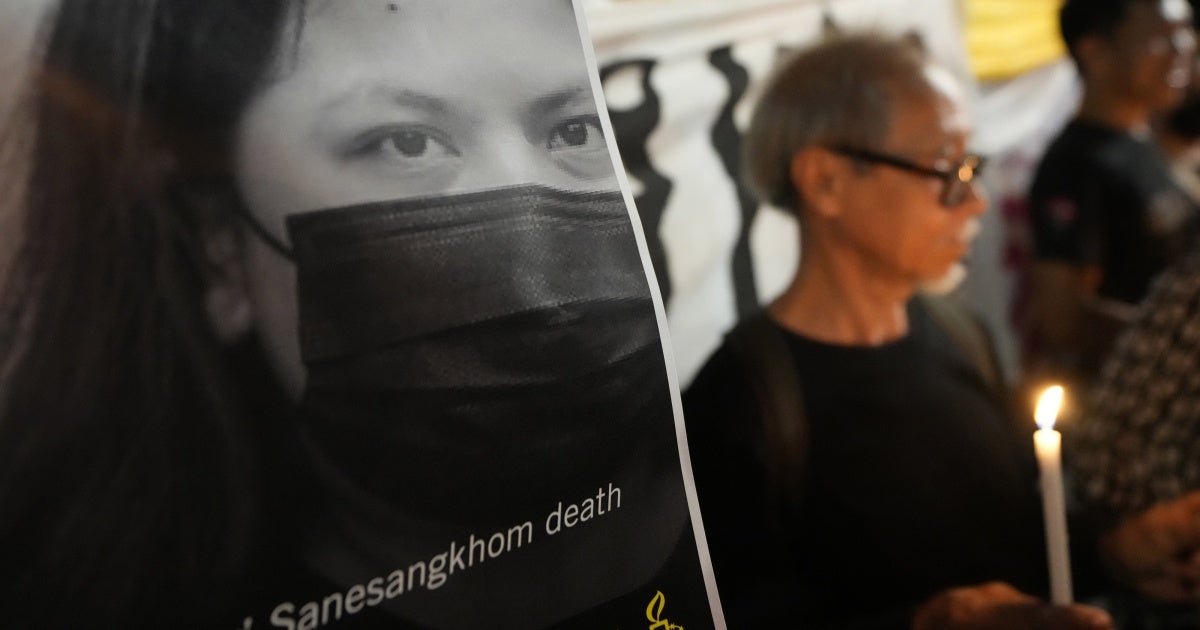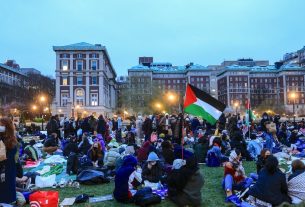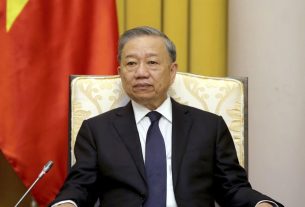(Bangkok) – Thai authorities should impartially and transparently investigate the death of a detained anti-monarchy activist, Netiporn “Bung” Sanesangkhom, in Bangkok, Human Rights Watch said today. Prime Minister Srettha Tavisin promised an inquiry into her death in Bangkok, which has raised concerns about possible negligence by prison officials in referring her for life-saving medical treatment.
“Thai Prime Minister Srettha should promptly fulfill his pledge to investigate Netiporn’s death in detention,” said Elaine Pearson, Asia director at Human Rights Watch. “It’s critically important for any officials found to have contributed to her death to be held accountable and to ensure that detainees and prisoners have access to adequate medical care.”
On May 14, 2024, at approximately 6:20 a.m., Netiporn, 28, suffered cardiac arrest at the Central Women’s Correctional Institution in Bangkok. Medical personnel at the prison hospital reportedly tried to revive her, including by intubation, apparently without success.
After a delay of three hours, she was then transferred to Thammasat University Hospital at 9:30 a.m. A coroner’s report seen by Human Rights Watch said that Netiporn had no vital signs when she arrived at the hospital and noted a “faulty intubation”. She was pronounced dead at 11:20 a.m.
Netiporn had been one of about 270 activists charged with lese majeste (insulting the monarchy) after pro-democracy demonstrations broke out in Thailand in 2020. Her alleged crimes were related to a campaign to survey the inconvenience that royal motorcades caused for the Thai public.
The authorities jailed Netiporn in January for contempt of court and her custody was extended after her bail was revoked in a lese majeste case. She began a hunger strike, and for 110 days only occasionally accepted water, demanding an end to the prosecution of dissidents charged with lese majeste and their right to bail.
“Prime Minister Srettha should fulfill his promise to investigate the circumstances of Netiporn’s custodial death and hold officials accountable if their actions contributed to her death,” Pearson said. “The cycle of abuses and impunity in Thailand’s prisons should not be treated as the norm.”
Kritsadang Nutcharus of Thai Lawyers for Human Rights, which represents Netiporn’s family, alleged that the Corrections Department, despite repeated requests, delayed handing over her medical records to him and her family.
Thailand is obligated under international human rights law to provide for the medical care of everyone deprived of their liberty. The United Nations Committee on Economic, Social and Cultural Rights, the independent expert body that monitors state compliance with the International Covenant on Economic, Social and Cultural Rights, to which Thailand is a party, states in its General Comment on the right to the highest attainable standard of health that governments are obligated to respect the right to health by “refraining from denying or limiting equal access for all persons, including prisoners or detainees … to preventive, curative and palliative health services.”
The UN Basic Principles for the Treatment of Prisoners states: “Prisoners shall have access to the health services available in the country without discrimination on the grounds of their legal situation.” The UN Standard Minimum Rules for the Treatment of Prisoners, known as the “Nelson Mandela Rules,” provides that “all prisons shall ensure prompt access to medical attention in urgent cases. Prisoners who require specialized treatment or surgery shall be transferred to specialized institutions or to civil hospitals.”
Hundreds of people accused of criticizing the monarchy in Thailand are currently in pretrial detention without access to bail.
Human Rights Watch, along with the UN Human Rights Committee, the UN special rapporteurs on freedom of expression and opinion and the rights to freedom of peaceful assembly and association, and the Working Group on Arbitrary Detention, have urged the Thai government to stop arbitrarily detaining critics of the government and imposing excessive restrictions on the legitimate exercise of freedoms of expression and peaceful assembly.
Thailand is seeking a seat on the UN Human Rights Council for the 2025-2027 term but has taken no steps to reform the lese majeste law or adopt a moratorium on the prosecution or pretrial detention of critics of the monarchy, Human Rights Watch said.
“The United Nations and concerned governments should press for a prompt and transparent investigation into Netiporn’s death,” Pearson said. “Prime Minister Srettha should end the prosecutions of people peacefully demanding reform and at a minimum ensure those arrested for insulting the monarchy are released on bail.”



